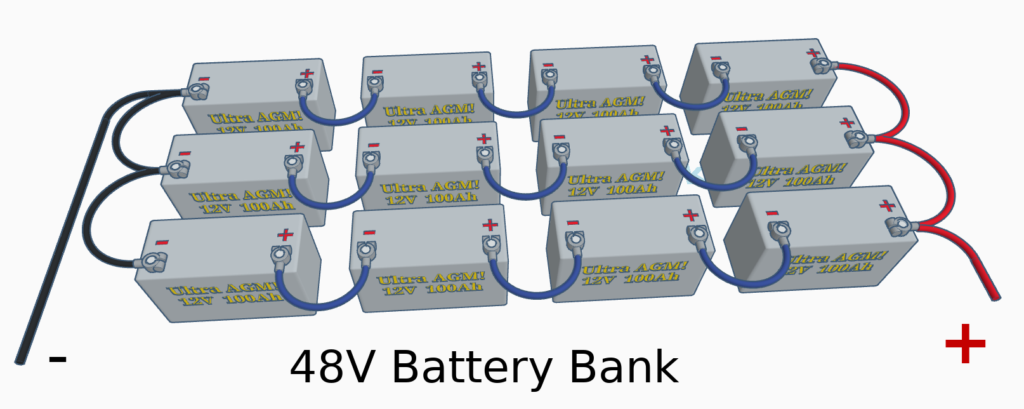Series-connected lead-acid batteries are commonly used in various applications, including automotive, marine, and renewable energy systems. Here are some precautions to consider when dealing with series-connected lead-acid batteries.
- Proper Ventilation: Lead-acid batteries release hydrogen gas during charging, which is highly flammable. Ensure that the area where the batteries are kept is well-ventilated to prevent the accumulation of hydrogen gas.
- Avoid Short Circuits: Ensure that the terminals of the batteries are properly insulated to prevent accidental short circuits, which can lead to overheating and potential fire hazards.
- Equalizing Charge: Periodically, it’s important to perform an equalizing charge on the batteries to ensure that all cells within the battery bank are charged equally. This helps prevent overcharging of individual cells, which can lead to reduced battery life and potential failure.
- Proper Charging: Use a charger specifically designed for lead-acid batteries and follow the manufacturer’s recommendations for charging parameters. Overcharging or undercharging can lead to reduced battery life and performance.
- Temperature Control: Lead-acid batteries perform best within a certain temperature range. Avoid exposing the batteries to extreme temperatures, as this can affect their performance and lifespan.
- Regular Maintenance: Perform regular maintenance checks on the batteries, including inspecting for leaks, corrosion, and ensuring that the electrolyte levels are within the recommended range.
- Safety Gear: When working with lead-acid batteries, wear appropriate safety gear such as gloves and safety goggles to protect yourself from acid spills and other hazards.
- Correct Installation: Ensure that the batteries are installed in a stable and secure manner to prevent tipping or movement, which can damage the batteries or cause injury.
- Avoid Overloading: Do not exceed the maximum recommended load for the battery bank. Overloading can lead to excessive heat buildup and reduce the lifespan of the batteries.
- Monitoring: Regularly monitor the voltage and state of charge of the battery bank to ensure proper operation and performance.
- Disposal: When disposing of lead-acid batteries, follow proper recycling procedures to prevent environmental contamination and comply with local regulations.
By following these precautions, you can ensure the safe and efficient operation of series-connected lead-acid batteries.


